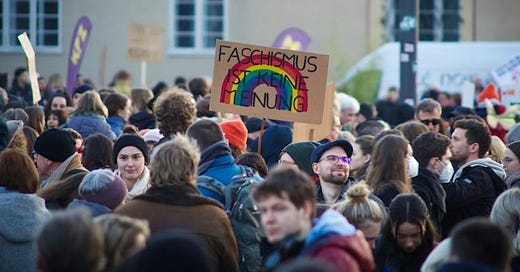REPOST: AfD rises, Germans protest like it’s 1933
With the far right's first state election win since the Nazis, a philosophical response and one couple’s resistance
Keep reading with a 7-day free trial
Subscribe to This Week, Those Books to keep reading this post and get 7 days of free access to the full post archives.





